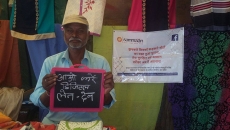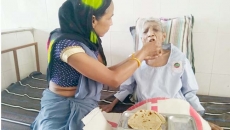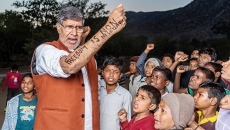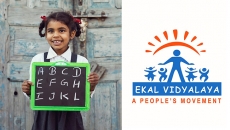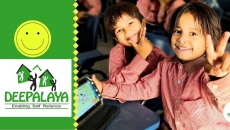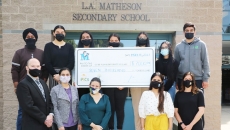For most of us, the idea of an individual with intellectual and developmental disabilities exercising their basic right to vote is unimaginable. Yet, for the differently-abled individuals of Yash Charitable Trust (YCT), this seemingly impossible act is a reality. These remarkable individuals not only cast their votes but also lead independent lives as working professionals.
Since 2014, YCT has empowered people with intellectual and developmental disabilities (PwIDD) by providing them with opportunities to live and work with self-respect. The driving force behind this initiative is Dr Sushama Nagarkar, a Rehabilitation Psychologist, whose unwavering commitment has enabled these individuals to embrace life with dignity, break stereotypes, and be independent. Reflecting on the inspiration for YCT, Nagarkar shares, “The decision came to me while I was in the United States. My daughter Aarti, who is a person on the autism spectrum, was receiving services there, and I was working in the school system grappling with long hours of work. Then it occurred to me that if I must struggle so much here, I might as well go back to India. Although the U.S. offers some financial support and services, the loneliness that an individual faces or the lack of opportunities remains the same. This realization fuelled my desire to return to India and start something meaningful.”
Thus, YCT was founded in 2014, with a mission to enhance the lives of people with lifelong disabilities such as autism, Down Syndrome, Cerebral Palsy, and other intellectual and developmental disabilities. Starting in a modest 200-square-foot space with five beneficiaries, YCT has now provided support and services to over 800 individuals to become independent and productive members of society. YCT also launched Arpan Kitchen, Arpan Bakery, and Arpan Café, providing real community jobs.

“When we decided to set up YCT, we didn't want to engage in typical shelter workshop activities like painting diyas, making agarbatis and soap. We also knew that this wasn’t the place where individuals were charged fees to come and be occupied. At that point, I visited a friend of mine who was running a dabba (tiffin) service from home. And I thought, not try this? Food is an equalizer, and food is important to any community. So, we brought her expertise and tiffin service into our 200-square-foot space and started with five beneficiaries,” informs Nagarkar.

Emphasizing the core beliefs of YCT — inclusivity, acceptance, and empowerment, Nagarkar states, “It's important to build supportive systems around these individuals, recognizing them as valued members of society who bring value to the larger community. While they may have significant disabilities, our role is to support them rather than dictate how they should fit in. From the start, we focused on this approach and continue to do so.”

Addressing the challenges of changing society’s perception of PwIDD, she says, “When we began the dabba services, the neighbourhood was shocked. They could see that these individuals, who traditionally were put away, and who you didn’t see out on the streets unless with their parents, were now going to the vegetable vendors, buying groceries, and going in rickshaws to deliver dabbas independently. I got questions like, ‘You are sending them all alone, aren’t you scared?’ So, there was a lot of nervousness in the community. We had to build that confidence in the people around us. But now we are in a good place. The community recognizes all our members as they walk to-and-fro in their aprons and caps and everyone is friendly and accepting.”
Nagarkar adds, “Their families had to trust us with the process. We told the families that whatever we are doing has to be important to us, community-based, and inclusive. We are empowering each one of them to be a part of the community through what we do. The result is everyone is happy. Some of our guys, from lower-income families now contribute to the family income, while others save money for themselves.”
YCT has two verticals — a Skill Development Centre and Adult Support Kendra. Nagarkar explains, “The F&B space is relatively easy to teach. We use pictorial instructions for those who cannot read or write. We teach them recipes and teach them to identify and use various kitchen tools, followed by tasks like cutting, chopping, and maintaining hygiene. We also teach teamwork, respect, taking instructions, and other essential skills for working in our kitchen, bakery, or café.”

Regarding the Adult Support Kendra, Nagarkar emphasizes the need for post-school transition support for adults and their families. YCT offers need-based counselling and addresses mental health concerns, conducting workshops to help adults and their families navigate various challenges. She says, “There are adults who may want to get married, have a relationship, or face gender identity crises… we provide support services for all of that. We also address significant topics like sexuality and intimacy.”
While YCT welcomes all PwIDD, they must be able to communicate, not necessarily verbally, be toilet trained, and most importantly, want to be there.
“We don't run this like a school; there are no holidays, and we don't charge for training. It's operated like a regular workplace. When joining the centre, adults take on responsibilities such as punctuality, grooming, and proper attire from day one. We emphasize that the decision to stay, learn and earn must come from the adult and not their parents,” informs Nagarkar.
Dr Sushama Nagarkar's hard work with YCT shows how PwIDD can be empowered, leading to a more inclusive and caring society.
 As YCT continues its work, it welcomes support from volunteers and donors to help improve the quality of life for many young adults with intellectual and developmental disabilities. For more information, visit their official website: https://www.yashcharitabletrust.org/
As YCT continues its work, it welcomes support from volunteers and donors to help improve the quality of life for many young adults with intellectual and developmental disabilities. For more information, visit their official website: https://www.yashcharitabletrust.org/


